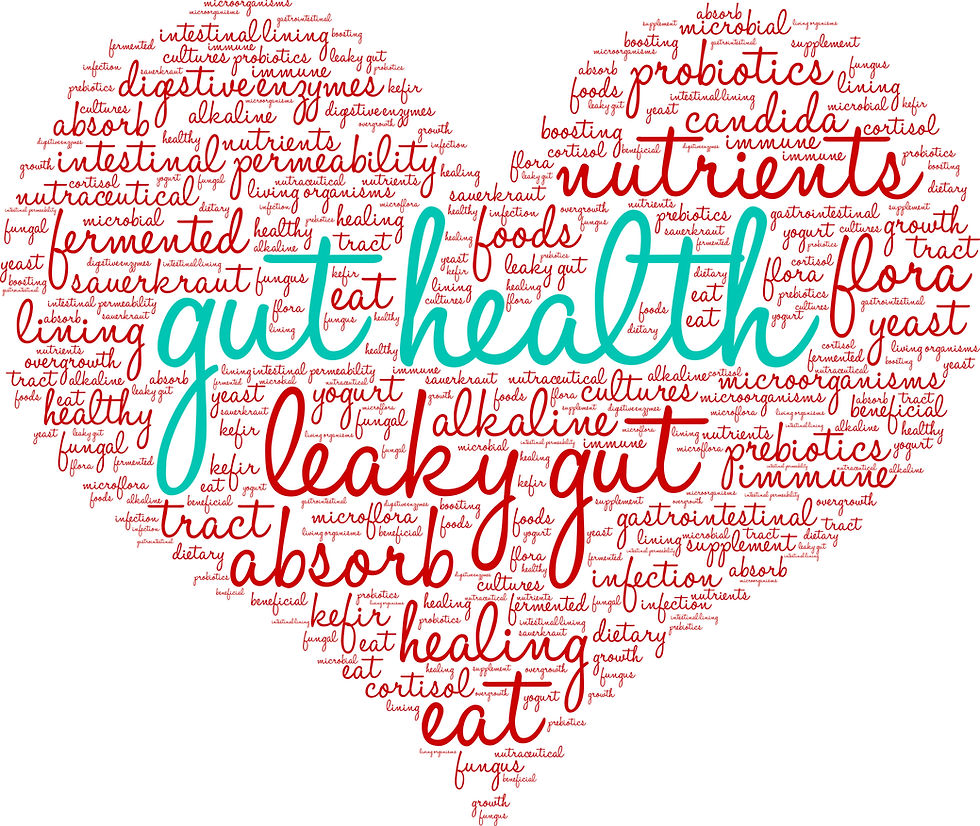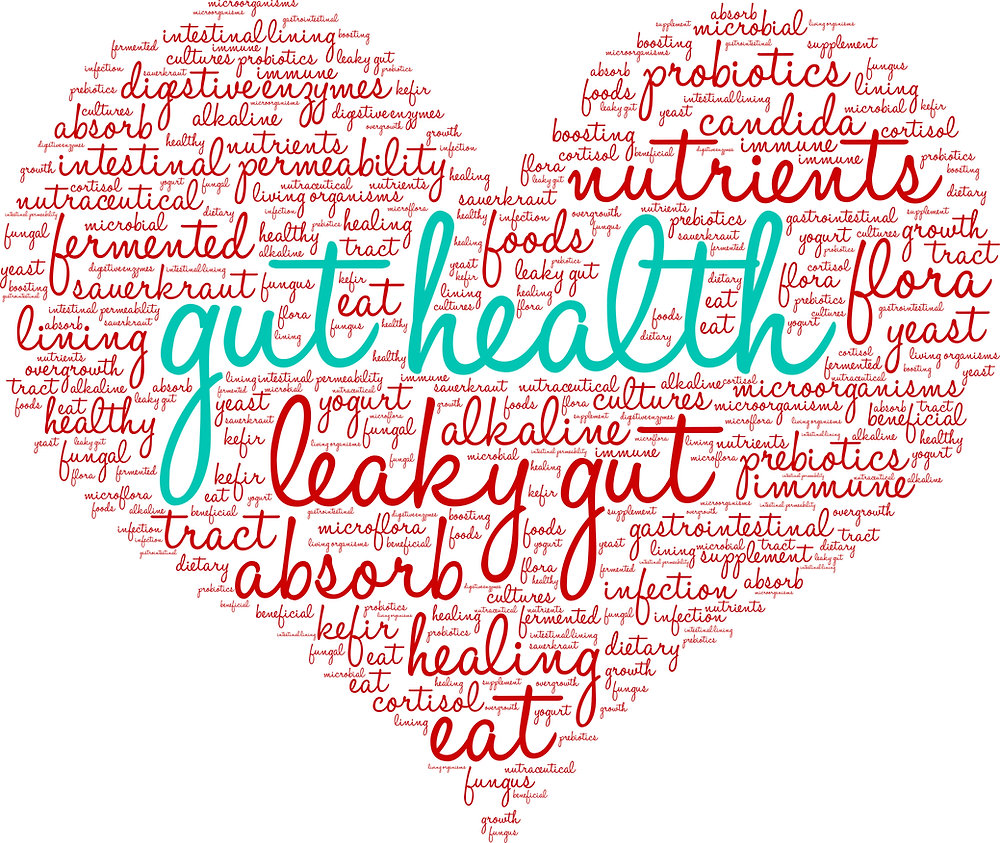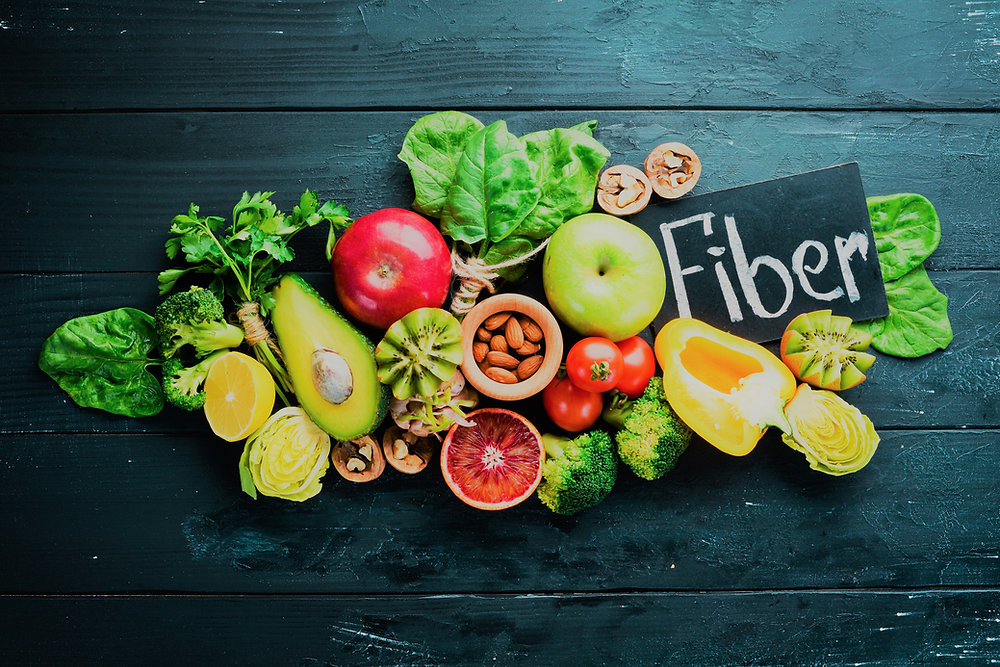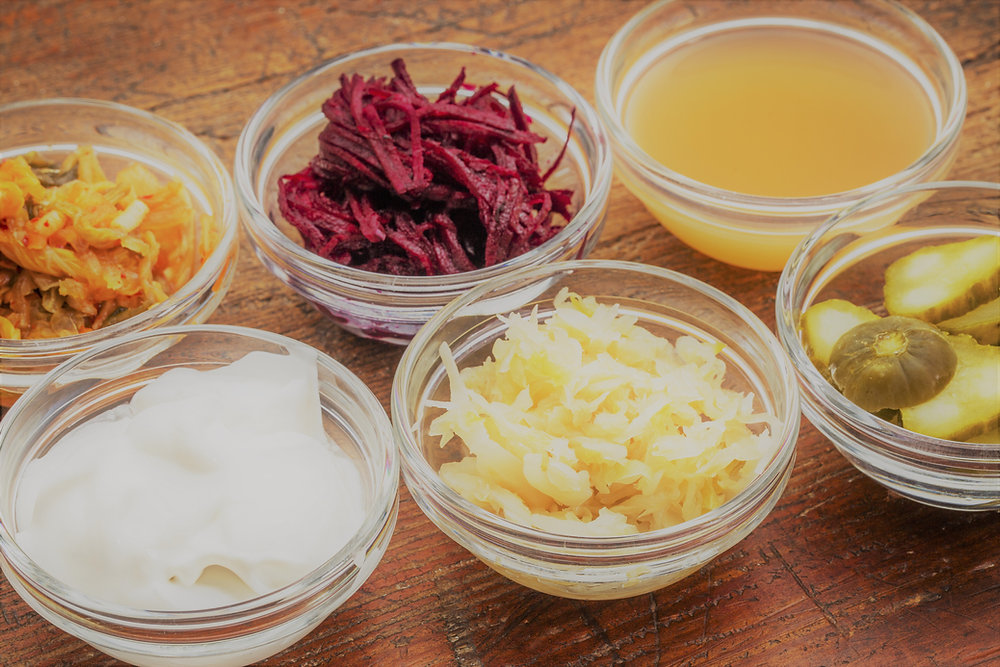
“All disease begins in the gut” – Hippocrates
Even in the times of ancient Greece, Hippocrates called out the importance of gut health! Currently, gut health is a hot topic and will continue to be, as more research is constantly emerging that shows how vital a healthy gut truly is, and how gut issues are linked to a wide variety of problems, from depression to rheumatoid arthritis. Gut health issues have become very common, and we see this with so many clients in our work. It is not surprising, considering that the prevailing Standard American Diet is full of processed foods, refined sugars, and refined flours, that are lacking in nutrients and are also damaging to the gut.
The Gut's Role
The gut microbiome is home to 100 trillion microorganisms. The gut’s primary function is digestion and absorption of nutrients, as well as excretion of waste. However, it also has a major influence on both the development and function of the immune system (70-80% of the body’s immune cells are in the gut), as well as on gut-brain communications. There are 100 million neurons located along the gut which produce various neurotransmitters that regulate mood and satiety.
Also, 95% of the body’s total serotonin is located in the gut. Serotonin is the key hormone that stabilizes our mood, feelings of well-being, and happiness. It also enables brain cells and other nervous system cells to communicate with each other, and helps with sleeping, eating, and digestion. As you can see, this hormone impacts your entire body. Clearly, making sure the gut is functioning at optimal health is paramount!
How do we know if we have gut health issues?
Some signs of gut health issues include:
Stomach Issues (bloating, gas, constipation, diarrhea, and heartburn)
Autoimmune Conditions
Fatigue and Sleep Disturbances
Unintentional Weight Changes
Food Intolerances
Migraines and Headaches
Skin Irritation
Mood Changes and Issues
Why so many gut health issues?
A Canadian neuroscientist, Ian Spreadbury, has argued that the effect of acellular carbs like flour, sugar, and processed foods on the upper gut microbiota and the immune system may be the main cause of obesity and many Western diseases. These acellular carbohydrates do not feed the beneficial bacteria in our large intestine and instead promote bacterial overgrowth and dysbiosis in our small intestine. This causes systemic inflammation and many other outcomes that contribute to the issues listed above.
This helps explain why an ancestral-based diet and lifestyle is so beneficial, with an emphasis on cellular carbohydrates like whole fruits and vegetables, nuts and seeds, and starchy plants. These foods nourish and enrich our gut microbiome and thus protect against disease and promote optimal health.
How can you eat to support gut health?
To improve gut health, below are some thoughts on what to limit (or avoid for some people) and what to eat more of instead.
For improving gut health, limit or avoid:
Refined Flour
Refined Sugar
Industrial seed oils (soybean, peanut, corn, safflower, wheat-germ, canola, sunflower, cottonseed, grapeseed, rice bran)
Foods high in insoluble fiber: greens (spinach, lettuce, kale, mesclun, collards, arugula, watercress, etc), whole peas, snow peas, snap peas, pea pods, green beans, kernel corn, bell peppers, eggplant, celery, onions, shallots, leeks, scallions, garlic, cabbage, bok choy, Brussels sprouts, broccoli and cauliflower
Excess alcohol (no more than 4-6 drinks/week, and eliminating alcohol completely if you have significant gut issues)
Note: The 1st three items listed here (refined flour, refined sugar, and industrial seed oils) ideally would remain out of a healthy diet, not just for the gut, but for overall health. All of the vegetables listed can play an important part in a healthy diet, but when you are struggling with gut issues, they can aggravate the problem and make it worse.
To promote gut health, eat more of the following:
Bone Broth
Resistant starch (raw unmodified potato starch, unripe plantains, unripe bananas)
Fermented foods (sauerkraut, kimchi, pickles, natto, beet kvass, kombucha, water kefir, etc)
Foods higher in soluble fiber and lower in insoluble fiber: carrots, winter squash, summer squash (especially peeled), starchy tubers (yams, sweet potatoes, potatoes), turnips, rutabagas, parsnips, beets, plantains, taro, and yuca
Additional Tips for Eating Vegetables
Foods high in insoluble fiber should not be eaten on an empty stomach and are best when eaten with other foods that contain soluble fiber.
Remove the stems and peels from veggies (such as broccoli, cauliflower, and winter greens) and fruits that are high in insoluble fiber.
Dice, mash, chop, grate, or blend high-insoluble-fiber foods to make them easier to break down and digest.
Insoluble-fiber foods are best eaten well cooked: steamed thoroughly, boiled in soup, braised, roasted until soft, etc. If you do eat them raw, prepare them as described above.
Ferment foods that are higher in insoluble fiber to make them more easily digested, as the fermentation process essentially predigests the food for you.
As you can see, gut health is something that we could spend pages and pages diving into, due to the complexity of how the gut effects the whole body. Hopefully the information you have read above has given you a starting point to work towards better gut health! As always, start with what you can manage and make more changes when ready. Our recommendation for a first step would be to remove the 3 foods that are staples in the Standard American Diet: refined flour, refined sugar, and industrial seed oils – read more here about why. If we can support your journey, please reach out!
Yours in Health ~ Jeanna
Reach out for a FREE consultation today: Call us at 303.525.5848 Email us at jeanna@lifestyle-evolution.com Find our profile on DaoCloud: https://www.daocloud.com/pro/lifestyle-evolution #virtualcoaching #healthcoaching #healthcoach #cleaneating #ancestraleating #nutritioncoach #eatingforweightloss #Weightloss #healthandwellness #obesityhelp #nutrientdense #selfcare #lifestylechange #dreambig #guthealth




